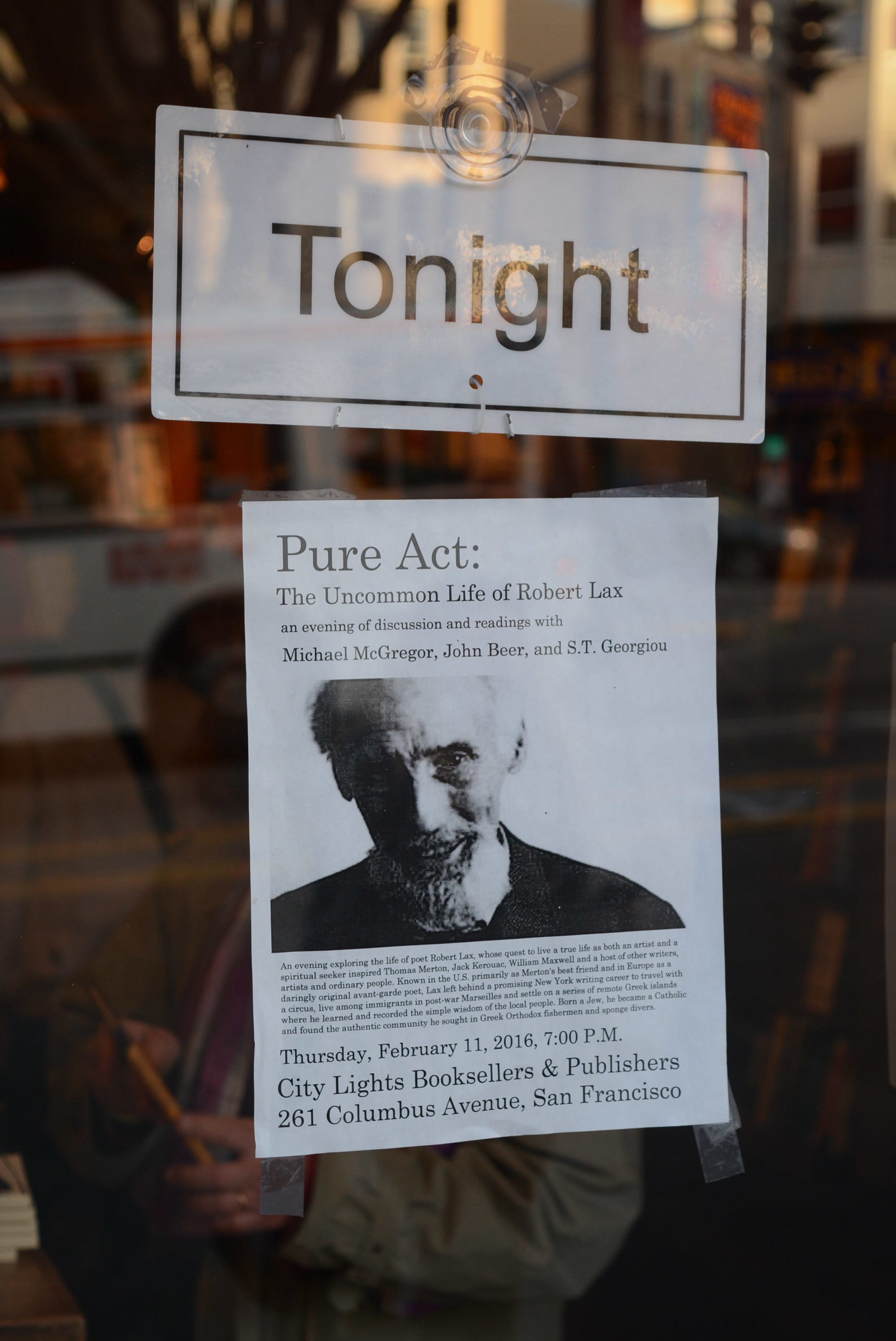The image here is of the bottle of vintage French wine Sylvia and I opened to celebrate signing my book contract with Fordham University Press two years ago. Pure Act: The Uncommon Life of Robert Lax has been out in the world just over a year now, and what a year it has been. The unofficial end of the book’s debut year came three weeks ago when we attended the Washington State Book Awards in Seattle. Pure Act was a finalist in the Biography/Memoir category. It didn’t win but it was a great honor to be recognized in my home state.
All told, Pure Act was a finalist for four awards: the WSBA in Biography/Memoir, the Religion Newswriters Association Book Award for best religion book of the year, the Association of Catholic Publishers’ Excellence in Publishing Award in Biography (it won second place) and the Catholic Press Association’s Book Award in Biography (it received an Honorable Mention). It has been nominated for an Oregon Book Award too, but the finalists for that won’t be announced until early January 2017.
For a big book by a first-time author about a little-known poet published by a small publisher, it has done pretty well. It’s in its third printing and a paperback version will be published in March 2017. It was favorably reviewed in the New York Times Book Review, the Times Literary Supplement in the U.K., Publishers Weekly, the Oregonian and over 20 other publications. The American Association of University Professors recommended it as one of ten nonfiction books and only two biographies (the other was of Mark Twain) in the area of American Studies for libraries to purchase in 2016. I’ve had a chance to read from it at bookstores, universities and community events across the country. And it has led to my being asked to be a keynote speaker at the 2017 International Thomas Merton Society conference at Saint Bonaventure University.
I’m reluctant to let this wonderful year end, but time marches on, of course, and I’ve already drafted my next book, a memoir about a year spent in the San Juan Islands. A huge thank you to all who were part of a marvelous experience.








